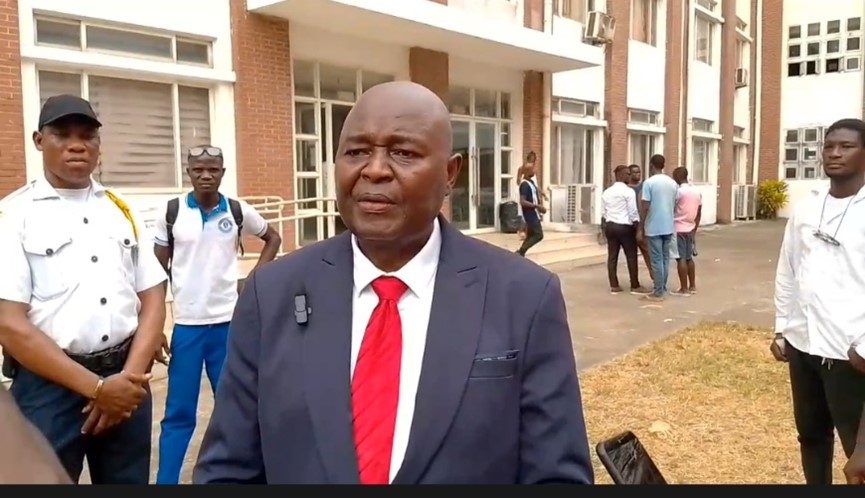Dr. Al-Hassan Conteh, former Acting President of the University of Liberia (UL), categorically refutes allegations of financial mismanagement during his tenure, specifically regarding purported renovation funds of US$34 million. He clarifies that no such funds were allocated to the university during his leadership from July 2024 to January 2025. Instead, his primary focus, along with the Interim Management Team, was to assess the university’s infrastructure needs, develop comprehensive budgets, and submit these proposals to the Liberian government for consideration and funding.
Dr. Conteh highlights the significant financial constraints faced by the UL, particularly the allocation of the university’s budget. The majority of the US$33 million 2024 budget, approximately 80%, was dedicated to personnel costs, primarily faculty salaries. This left a mere 20% for essential operational expenses like facility maintenance and fuel. He emphasizes that this budgetary structure, coupled with years of minimal operational funding, has created a chronic financial strain on the institution, often leading to delays in payments to part-time instructors.
Addressing the renovation needs specifically, Dr. Conteh explains that a thorough assessment conducted in collaboration with the Ministry of Public Works revealed that approximately US$13.1 million was required to address the decaying infrastructure across the UL’s various campuses. This amount included US$3.92 million for building renovations and US$9.25 million for the construction of much-needed concrete access roads. Crucially, he reiterates that despite identifying these needs and developing the associated budget, no funds were actually disbursed for these projects during his time as Acting President.
Despite the challenging financial landscape, Dr. Conteh’s interim leadership achieved several notable milestones. He spearheaded the development of a plan to reinstate academic activities following months of disruption, culminating in the successful graduation of 2,685 students at the 104th Commencement Convocation. Furthermore, his administration oversaw the launch of the UL’s first doctoral programs in biomedical sciences and public health, a significant step towards expanding the university’s academic offerings and research capabilities.
Beyond academic achievements, Dr. Conteh’s administration also addressed critical logistical challenges. Utilizing funds from the university’s endowment, managed by the Trustees of Donations for Education in Liberia (TDEL), two 17-seater buses were procured for the Straz-Sinje campus in Grand Cape Mount County. This initiative aimed to alleviate transportation difficulties for students commuting to and from the campus, thereby improving student mobility and enhancing campus life.
During the investiture ceremony for the UL’s 16th President, Dr. Layli Maparyan, Dr. Conteh delivered a farewell address expressing gratitude to President Joseph Boakai and the Board of Trustees for their support during his tenure. Acknowledging the persistent financial hurdles, he emphasized the groundwork laid for future progress. He further appealed to the government to increase its financial commitment to the UL, particularly in addressing the urgent need for infrastructure renovation, providing adequate transportation for faculty and staff, and settling outstanding salary arrears owed to adjunct faculty.
As Dr. Maparyan assumes the presidency, the University of Liberia faces significant challenges, including persistent underfunding and deteriorating infrastructure. However, Dr. Conteh’s efforts to assess needs, develop budgets, and initiate crucial programs, despite financial constraints, have laid a foundation for future growth. The university’s ability to overcome these challenges and fulfill its mission of fostering academic excellence and contributing to national development will depend on strong leadership, strategic planning, and increased support from the government. The transition presents both significant hurdles and opportunities for the UL to revitalize its infrastructure, strengthen its academic programs, and secure its position as a leading institution of higher learning in Liberia. Addressing the issues of delayed faculty payments and inadequate transportation will be crucial in attracting and retaining qualified educators and ensuring a conducive learning environment for students. The future of the UL hinges on the collaborative efforts of the new administration, the government, and other stakeholders to secure the necessary resources and implement effective strategies for long-term sustainability and growth.


